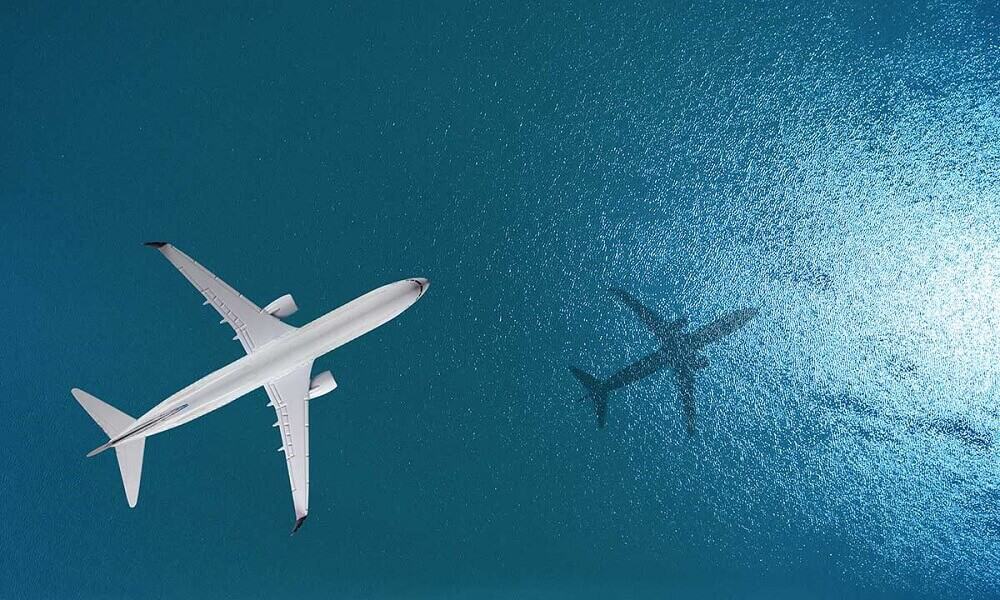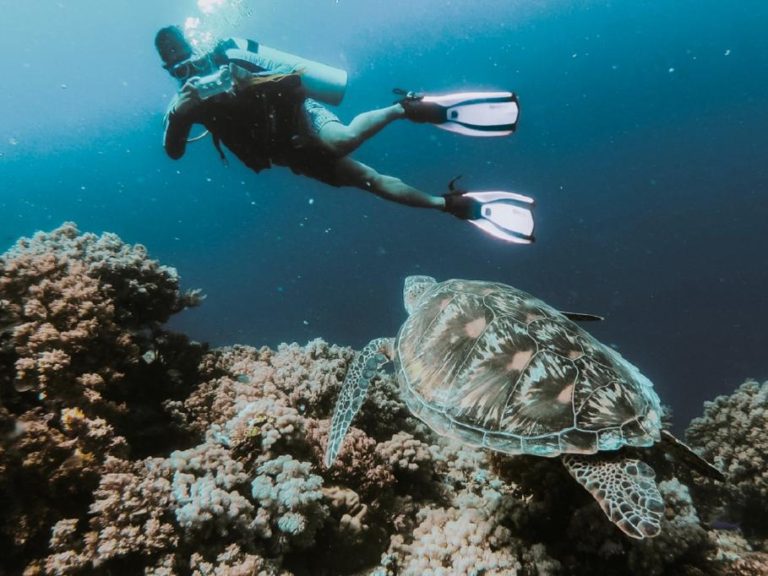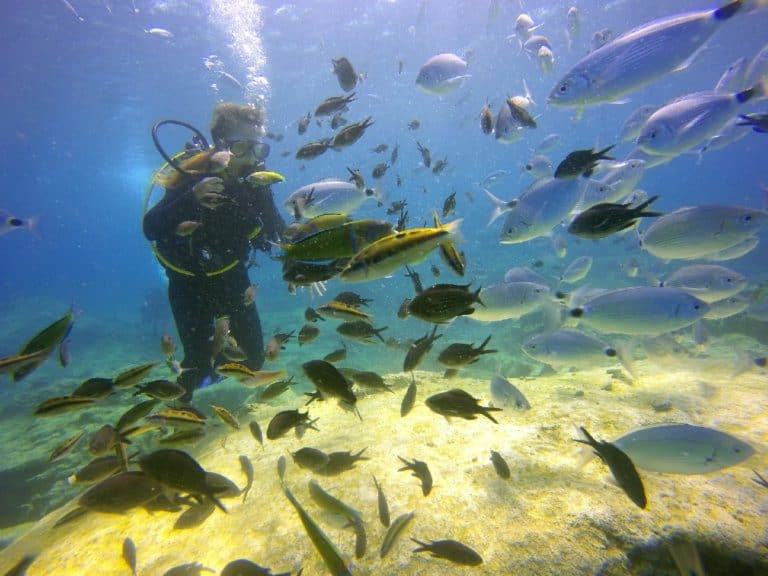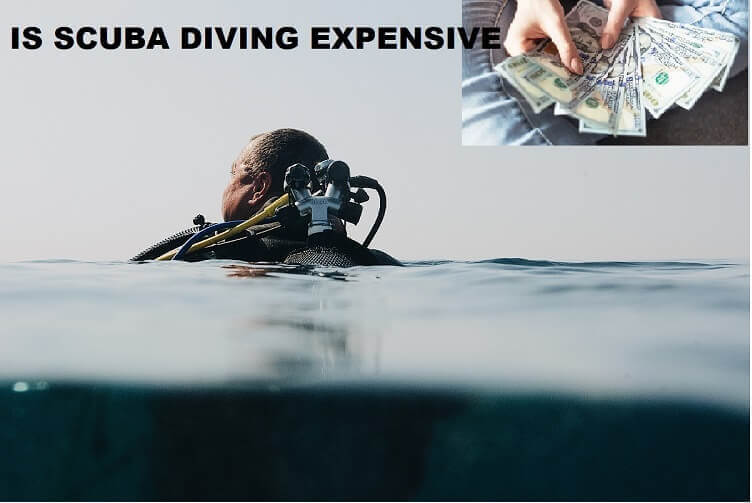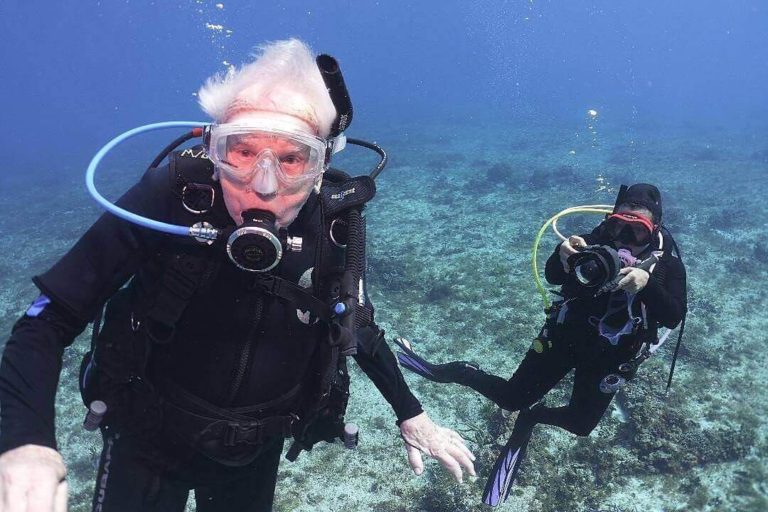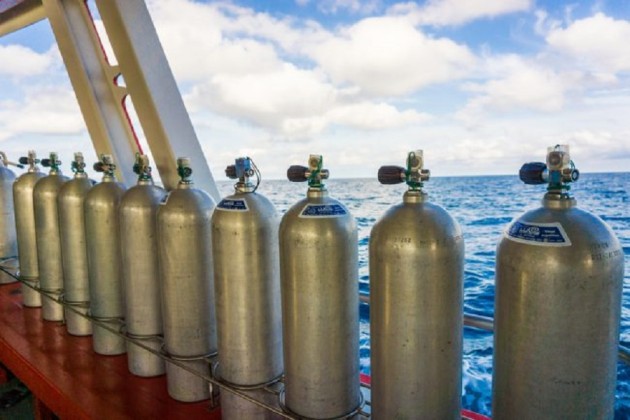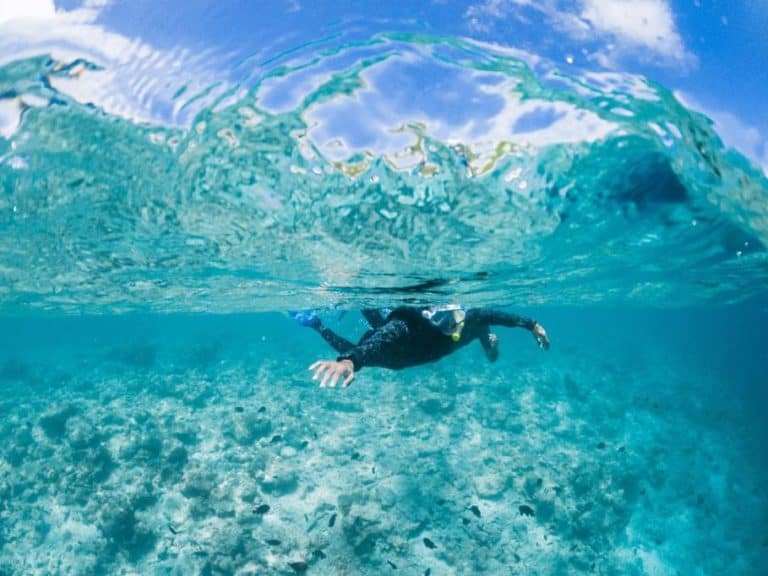How Long After Scuba Diving Can You Fly
Maybe you planned a last-minute scuba diving trip during your holiday or simply love scuba diving and enjoy multiple dives each day, you may wonder how long after scuba diving can you fly?
According to Divers Alert Network (DAN), you should wait for at least 12 hours after scuba diving before flying. Different diving agencies and institutions have different recommendations depending on the type of dive(s) but generally, you should wait 12-24 hours before flying.
Every traveler loves maximizing their experience at each destination. For scuba diving lovers this could mean diving even on the last day of the trip.
Diving and flying both expose your body to low air pressures meaning, if done carelessly flying right after diving could increase the risk of decompression sickness.
Both activities increase the chances of developing decompression sickness (DCS).
After diving, you may have tinny bubbles of nitrogen in your tissues which are naturally released within the next hours or days after diving. The problem arises when you ascend to high altitudes immediately after a dive as this will result in the nitrogen bubbles expanding and accumulating in your body.
In this article we’ll look into;
- What happens if you fly too soon after scuba diving
- Why can’t you scuba dive and fly on the same day
- How long does it take to decompress after diving
- How long after flying can you dive
- Can you go hiking after diving

Why Can’t You Scuba Dive and Fly on the Same Day
The main reason why you can’t scuba dive and fly on the same day is that this increases the risk of decompression sickness which is quite expensive to treat and could be fatal if not treated properly.
However, the answer to this question may vary depending on;
- When the dive happens and when your flight is scheduled.
- Dive depth, length, and the number of dives taken in the past few days.
If you happen to go on a recreational dive say at 8 am on the day of departure, your flight should be scheduled from 9 pm the same day. This is fine because you will have over 12 hours after the dive to relax and allow your body to release nitrogen absorbed during the dive.
This rule however only applies if this is the only dive you’ll have taken within the last 4- 5 days. If you have been diving actively days before the departure, then you should wait for at least 18 – 24 hours before flying.
It’s wise to plan all the dives early and avoid taking any last-minute dives on the day of departure.
In addition, if the dive is into deep waters to depths over 30 meters, divers should also wait at least 18 – 24 hours before flying.
Multiple and deep dives generally increase the levels of nitrogen in the body thus requiring more time to off-gas.
RAED MORE: How to Prepare For Your First Scuba Diving Trip
How Long Does It Take To Decompress After Diving
Decompression mostly applies to divers diving deep into the water over 65 feet. In recreational diving, decompression isn’t necessary since the body tissues don’t get saturated during the dive.
Recreational divers are able to ascend from the water on the same day without requiring decompression or any stops during ascending.
According to DAN, decompression time varies depending on the depth of the dive. It can take a diver up to 8 days of decompression after a 650 ft. dive. This means that the divers ascend slowly making mandatory stops within the eight days.
In recreational diving, the divers are also required to ascend slowly to allow the body tissues time to release absorbed nitrogen. A quick ascend can result in injuries such as lung expansion and also increases the risk of decompression sickness.

What Happens If You Fly Too Soon After Scuba Diving
Flying too soon after scuba diving raises the amount of nitrogen in your body resulting in decompression sickness.
During an ascend, the body tissues release some of the dissolved nitrogen but don’t release all of it. This means that there is still some nitrogen dissolved in your blood which is released slowly once you surface and during the next couple of hours or days after the dive.
Hopping onto a plane too soon will lower the air pressure and nitrogen in the body starts to expand. Nitrogen bubbles remaining in the body tissues get bigger.
Once this happens, decompression sickness onsets which can be very painful as described by divers.
The recommended wait hours help the body release absorbed nitrogen in the body. This leaves no chance of any residual nitrogen from expanding during the flight.
Pressurization in the cabin is still lower than sea level pressure. This increases the chances of onsetting DCS.
Look out for any signs of DCS during the flight and consult your doctor upon landing. It’s safe to have a medical checkup even if the signs go away during the flight.
READ MORE: When Scuba Diving What Are the Bends?
How Long After Flying Can You Dive
There is no wait time required after flying for you to scuba dive. It is very safe to go scuba diving as soon as you land as long as you are physically fit and prepared to do so.
Experienced divers can actually dive straight from the plan without any problem. However, this isn’t recommended for beginners or in unfamiliar waters.
Some of the risks involve getting injured during the dive, panicking, and anxiety. You also risk hitting a rock or objects in the water or being attacked by marine life which could result in bodily harm.
Access your physical well-being and energy levels, long flights, in particular, tend to leave passengers very exhausted, hungry, dehydrated, or even feeling sickly.
Always take a few hours to relax and replenish your body for the dive.
Can You Go Hiking After Diving

Many resorts organize different activities on the same day such as scuba diving and hiking. One may wonder is it safe to hike after scuba diving.
The answer to this question is no. Hiking above 10,000 ft. puts you at the same risk as flying right after scuba diving. Pressure within the flight cabins is usually to a maximum of 8000 ft. above sea level. This means that hiking after scuba diving increases your chances of getting DCS.
The nitrogen bubbles still dissolved in the blood after scuba diving will expand as you hike the mountain which will most likely trigger an onset of DCS.
Based on past experiences if you tend to develop DCS during flights it’s safe to wait for at least 24 hours before hiking.
If this is your first time hiking right after scuba diving, it’s best to schedule the activities on different days, or better yet start with the hike in the morning and then go scuba diving in the afternoon.
This would be the best way to relax since both activities are energy-consuming but hiking requires more energy than scuba diving.
Final Thoughts
When accessing how long after scuba diving can you fly, always consider the number of dives you’ve taken in the last couple of days, the time between your dive and flight, and your general health. Even when all the other aspects on the checklist are okay your health should come first unusual tiredness could be an indicator of DCS, don’t rule it out as exhaustion from your trip.
Remember to monitor yourself during the flight and after for any signs of decompression sickness. Following the recommended 18 – 24 hours after a dive will guarantee you a safe flight home.
Always schedule your divs in advance and avoid last-minute dives on the day of departure. Conduct your own research on all the dive locations around you and decide which ones you’d like to visit. This will eliminate the chances of last-minute adventures.

